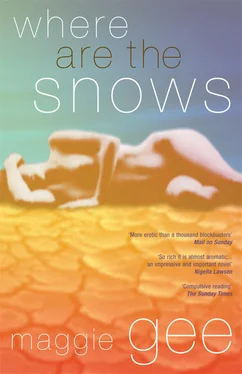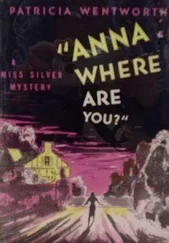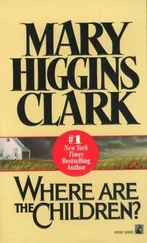Before I get to the door, the telephone rings.
28. Alexandra: Mexico City, 2007
I’ve been living alone for nearly two years. In a city of twenty million people, the biggest city in the world.
I don’t know why I came to Mexico City. I knew I must come to Mexico, though, once I had realised I couldn’t go home. I’ll never go home. I know that now.
I wanted to be alone. I wanted to be with crowds of people. So many millions of us live here, in a curious milky bowl of bad air kept in by the ring of mountains; snow-covered mountains, but we never see them, because the air we breathe is opaque. You get used to it. I’ve got used to it. I haven’t lost hope; one day I’ll see them. One amazing morning they will be there.
Everything else is here. Everything human is in this city. People of bronze, they call themselves, but actually every human colour, permutations of Spanish, Indian, African, Mayan, Aztec… I sometimes feel like a ghost among them, so pale that no one notices me.
I know this city is right for me. It’s old, like me. It was built on a lake, it was once another Venice, the glittering Tenochtitlán, but the canals and waterways have long dried up and the tower buildings have sunk and settled. Some of them lean a little, now, as if they’re trying to get back to the water which must still run deep underground. Decades ago I dreamed of living in Venice… but that was with Christopher, and I am alone.
I bought a flat — a modest flat — in a tower block within walking distance of the Alameda Gardens. The vendor himself tried to dissuade me; surely I wanted something larger, smarter…? But it suited me fine. It was curiously… homely.
No more hotels. No more moving on. Now I know my way in the half-dark. When I wake in the night and can’t get back to sleep, I can feel my way from room to room without having to put the light on. The flat is quite new but the furniture is old, heavy dark shapes that I seem to have known forever, and glide around by instinct.
I’ve begun to belong to these dim spaces.
Two years ago in Paris I so nearly went home, I so nearly went back to what was once home… I didn’t, so I suppose I never shall.
This flat will have to be my home.
I was in Paris grieving for Anna Maria. Fresh from the disaster in Brazil. I dumbly, unreasonably felt it was time. Time to go home, to crawl back home, now I’d lost my child and parted with Benjamin. Time to go back to London. I was half-crazy of course, I deluded myself. I thought I might talk to Mary Brown, I thought I could tell her everything… I was within an ace of picking up the phone.
But I suddenly knew it was no good. Paris is so near London, but it was no good. I thought of Mary and only saw blackness. I had a feeling of terrible foreboding; Mary or her family was dying, I knew; no one would have any time for me. I’m borderline psychic, always have been. I couldn’t have borne to ring up and be rejected. I thought, I can manage on my own, I have to.
Then something happened to steel my nerve. Something trivial, a casual pick-up, an unlikeable man whose name I’ve forgotten… but it got me on the next plane for Mexico City. Not for a holiday. To stay. I still don’t understand what happened…
I’d begun to feel a little better, I remember. I’d skulked in the hotel for nearly three days, paralysed with misery, but I slowly started to feel life creeping back, and with it came the old hunger for Paris. The silver avenues, the dreamy attics.
I dragged myself up and went for a walk, dressed up in my most beautiful clothes to disguise that I still felt ill and old.
I went — as so often, over the decades, with Christopher — to the Jardin du Luxembourg. The chestnut trees were still there. And replicas of the green iron chairs, and the boating lake, my old favourite, though some of the children were playing with whining remote-controlled submarines… But the children were playing. Their clear high voices. I sat on a chair to watch for a bit. I wasn’t in Paris, I was in Brazil, hearing the voice of Anna Maria… When the uniformed man came to sell me a ticket I didn’t notice he was there… then a boy came to sit beside me. He was watching me, sidelong. I arranged my face, I crossed my long legs above the knee. I was not averse to being looked at.
What was his name?… Jean-Claude, Jean-Pierre? I remember his hanks of blue — black hair which reminded me of Anna Maria’s, his brooding eyes, his full red lips. He was skinny, wiry, dressed in bright blue cotton from head to toe, as had just become the fashion then. He was anything from eighteen to twenty-five, not just young, young young.
I’m afraid my first thoughts were straightforwardly sexual. Benjamin and I hadn’t had sex for weeks, with the tension as we waited for the child, then Anna Maria sleeping in our bed. I had so much on my mind that my body had gone hungry. The body is important. It must be looked after, or else it will start to turn against you. Long ago I used to look after my body. For the past two years I haven’t bothered, but that day in Paris I considered the boy, I stroked my thighs, I uncrossed my legs, I felt a tingle in the centre of me, I thought my body might enjoy you.
We talked inconsequentially. He was a student, he said, a graduate. His parents were rich; I knew that from his clothes, from the confidence that fought with his shyness. He asked about me. I said I was a mystery. I said at my age too much had happened; to tell him everything would take all day. ‘And all night,’ I added, looking hard at him. I saw something there; pride, resistance. Perhaps he wanted to make the moves. He was very attractive; that wiry grace, the shining teeth behind his full lips. Fifty-year-old teeth don’t shine so much. His eyes were thick-lashed, almost black.
We walked a little in the summer heat which didn’t feel at all hot to me; I enjoyed the spaces, the measured greenness, the way that everything was planned, I looked forward to a game I hadn’t played in ages. There was a breeze, a real breeze that day, not a gale, which we are all afraid of, nor the sticky stillness of the tropical forest; a green summer breeze, which lifted my hair, blew my red hair out into the sunlight, whipped a few strands across his face, and he laughed, enjoyed it, brushed it away, and my skirt lifted too, we were floating, flying…
I suggested we lunch together, I would pay. He seemed to stiffen, then agree. I don’t know how long it takes those heavy tranquillisers to leave the system completely; I wasn’t supposed to drink with them, but I hadn’t taken pills for nearly two days.
— Maybe I shouldn’t blame the tranquillisers. Maybe I just wanted to be drunk. I should blame my desperate wish to forget, at the very moment in my life when I’d just understood in theory that no good would come from forgetting, no hope of forgiveness, no happiness.
We settled at a table in dappled sunlight. The place was expensive, and used to be good. The linen was amazing, after Brazil, thick as snow and blinding white, sticking out stiffly over our knees. I thought of Christopher; I thought of the mountains; I forced myself not to think these things.
‘Beautiful linen,’ I said to Jean-Claude.
‘Too much bleach,’ he frowned.
‘I didn’t know you were so strict…’
He smiled again, entirely charming.
‘You’re so delightful I can’t be strict. But you know these bleaches are so bad for the water… let’s order some wine and forget about the water.’
Everything shone with anticipation, the silver, the glasses, the linen. The bread — French bread, not coarse Brazilian! — was blonde and crusty with a tender warm centre, the butter white and sweet as a kiss. I wanted my little friend to be happy; I was actually feeling happy myself. I passed him the wine list with a deferential smile, and without looking at it he ordered champagne. It was going to be fun. I could still have fun.
Читать дальше












